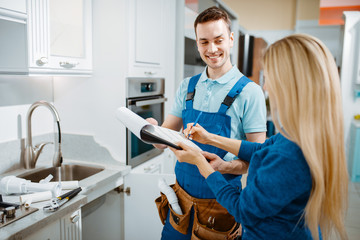Plumbers Sarasota play a crucial role in maintaining the functionality of residential and commercial properties. Their expertise ensures that water systems run efficiently and safely. Proper plumbing prevents water damage and maintains sanitary conditions. Skilled plumbers handle installations, repairs, and maintenance with precision and care.

Professional plumbers are trained to diagnose and resolve various plumbing issues. They inspect pipes, fixtures, and drainage systems to identify potential problems. Early detection helps prevent costly repairs and extensive damage. Regular maintenance ensures long-term system performance.
Pipe installation requires technical knowledge and accuracy. Plumbers select materials based on durability and compatibility with the environment. Correct installation prevents leaks and structural damage. Properly installed pipes support efficient water flow and pressure.
Drainage systems are essential for removing wastewater safely. Plumbers design and install systems that prevent blockages and overflow. Well-maintained drains reduce the risk of water damage and contamination. Efficient drainage supports overall plumbing health.
Leak detection and repair are critical to preventing water waste. Plumbers use advanced tools to locate hidden leaks. Prompt repairs minimize structural damage and reduce utility costs. Effective leak management preserves water resources.
Water heater installation and maintenance require specialized skills. Plumbers ensure proper sizing and placement for maximum efficiency. Regular maintenance extends the lifespan of water heaters. Safe and consistent hot water supply enhances comfort and convenience.
Clogged pipes and drains can disrupt daily activities. Plumbers use professional-grade equipment to clear obstructions. Preventive measures reduce the risk of recurring clogs. Uninterrupted water flow supports smooth household operations.
Plumbing emergencies require immediate attention to prevent extensive damage. Plumbers provide rapid response to issues like burst pipes and major leaks. Quick action prevents water damage and restores functionality. Reliable emergency service protects property and health.
Backflow prevention safeguards water quality. Plumbers install and maintain devices that prevent contamination. Proper backflow management protects drinking water from pollutants. Clean water supply supports public health and safety.
Sewer line maintenance ensures efficient waste removal. Plumbers inspect and repair sewer lines to prevent backups and leaks. Proper alignment and sealing reduce the risk of environmental contamination. Functional sewer systems maintain sanitary conditions.
Bathroom and kitchen remodeling often require plumbing adjustments. Plumbers relocate pipes and install new fixtures to accommodate design changes. Precise measurements and connections ensure compatibility. Professional plumbing enhances the functionality and appearance of remodeled spaces.
Water pressure regulation is essential for plumbing system health. Plumbers install pressure-reducing valves to maintain consistent flow. Proper pressure prevents pipe damage and fixture wear. Balanced pressure enhances overall system efficiency.
Gas line installation and maintenance require specialized expertise. Plumbers ensure proper sealing and ventilation to prevent leaks. Regular inspections maintain gas line safety. Secure connections reduce the risk of hazardous exposure.
Plumbers also handle outdoor plumbing needs. They install and maintain irrigation systems for efficient watering. Proper drainage prevents soil erosion and water pooling. Outdoor plumbing supports healthy landscaping and property maintenance.
Plumbing inspections are valuable for homebuyers and sellers. Plumbers assess the condition of pipes, fixtures, and water systems. Detailed reports inform property value and necessary repairs. Transparent inspections support confident real estate transactions.
Water conservation solutions reduce environmental impact. Plumbers install low-flow fixtures and efficient irrigation systems. Smart plumbing designs minimize water waste without sacrificing performance. Sustainable practices align with modern environmental goals.
Plumbing systems in multi-unit buildings require coordinated maintenance. Plumbers balance water flow and pressure across multiple units. Shared drainage systems must be regularly cleared and inspected. Efficient systems enhance tenant comfort and reduce maintenance costs.
Advanced plumbing technology improves system performance. Plumbers integrate smart sensors and automated controls. Real-time monitoring detects issues before they become major problems. Innovative systems enhance convenience and reduce operating costs.
Eco-friendly plumbing materials support environmental sustainability. Plumbers select pipes and fixtures made from recycled and non-toxic materials. Green plumbing solutions reduce waste and promote healthier living spaces. Environmentally conscious designs reflect modern values.
Plumbing in commercial properties requires scalable solutions. Plumbers design systems that handle high demand and frequent use. Regular maintenance minimizes downtime and repair costs. Reliable plumbing supports business operations and customer satisfaction.
Septic system maintenance ensures proper waste management. Plumbers inspect tanks and drainage fields for signs of damage. Routine pumping prevents overflow and contamination. Functional septic systems protect property and environmental health.
Frozen pipes can cause extensive damage if not addressed quickly. Plumbers use specialized techniques to thaw pipes safely. Insulating exposed pipes prevents future freezing. Preventive measures protect plumbing during cold weather.
Water filtration systems improve water quality and taste. Plumbers install and maintain filters that remove contaminants. Regular maintenance ensures consistent performance. Clean water enhances health and daily comfort.
Plumbing ventilation systems regulate air pressure and prevent odors. Plumbers install vents to balance pressure and improve airflow. Proper ventilation reduces moisture buildup and mold growth. Well-ventilated systems enhance indoor air quality.
Old plumbing systems often require updates to meet modern standards. Plumbers replace outdated pipes and fixtures with durable materials. Modern upgrades improve efficiency and safety. Updated plumbing systems enhance property value and performance.
Water softener systems reduce mineral buildup and improve water quality. Plumbers install and maintain systems to prevent scaling. Soft water protects pipes, fixtures, and appliances. Improved water quality enhances comfort and efficiency.
Plumbing permits and codes ensure safety and compliance. Plumbers secure permits and follow regulations for new installations and repairs. Compliance prevents legal issues and ensures system integrity. Professional oversight guarantees long-term safety.
Emergency shut-off valves protect against water damage. Plumbers install and test valves for quick access in emergencies. Accessible shut-off points prevent flooding and minimize repair costs. Functional shut-off systems enhance property protection.
Bathroom fixture upgrades enhance comfort and style. Plumbers install new sinks, faucets, and showers with modern designs. Precision installation ensures leak-free performance. Updated fixtures improve functionality and aesthetic appeal.
Kitchen plumbing upgrades increase efficiency and convenience. Plumbers install new sinks, dishwashers, and garbage disposals. Proper connections and sealing prevent leaks. Enhanced kitchen plumbing supports daily cooking and cleaning routines.
Plumbing in new construction requires detailed planning. Plumbers collaborate with architects and builders to design systems. Proper pipe placement ensures efficient water flow and drainage. Professional installation supports long-term structural integrity.
Inspections of underground plumbing systems prevent hidden damage. Plumbers use cameras and specialized tools to identify issues. Early detection reduces the need for extensive repairs. Regular inspections maintain system health and reliability.
Plumbing solutions for aging properties require specialized knowledge. Plumbers replace corroded pipes and outdated fixtures. Modern upgrades improve efficiency and safety. Restored systems enhance the comfort and value of older properties.
Water pressure boosters improve flow in low-pressure areas. Plumbers install and calibrate systems to maintain consistent pressure. Enhanced flow supports better performance of showers and appliances. Balanced pressure increases overall comfort.
Plumbing services for industrial properties require large-scale solutions. Plumbers design systems that handle high volumes and complex demands. Regular maintenance prevents operational disruptions. Reliable plumbing supports industrial productivity.
Smart plumbing systems use automation and monitoring for better efficiency. Plumbers install leak detectors, automated shut-offs, and pressure sensors. Real-time data allows for quick adjustments and repairs. Smart systems reduce water waste and maintenance costs.
Emergency plumbing services provide peace of mind. Plumbers respond quickly to urgent issues to prevent damage. Rapid repairs restore functionality and protect property value. Reliable emergency service ensures ongoing comfort and safety.
Professional plumbers offer valuable expertise and reliable solutions for modern living. Their skills ensure that plumbing systems function efficiently and safely. From installations to repairs, plumbers provide essential services that enhance comfort and convenience. Skilled workmanship protects property value and supports long-term system health.


